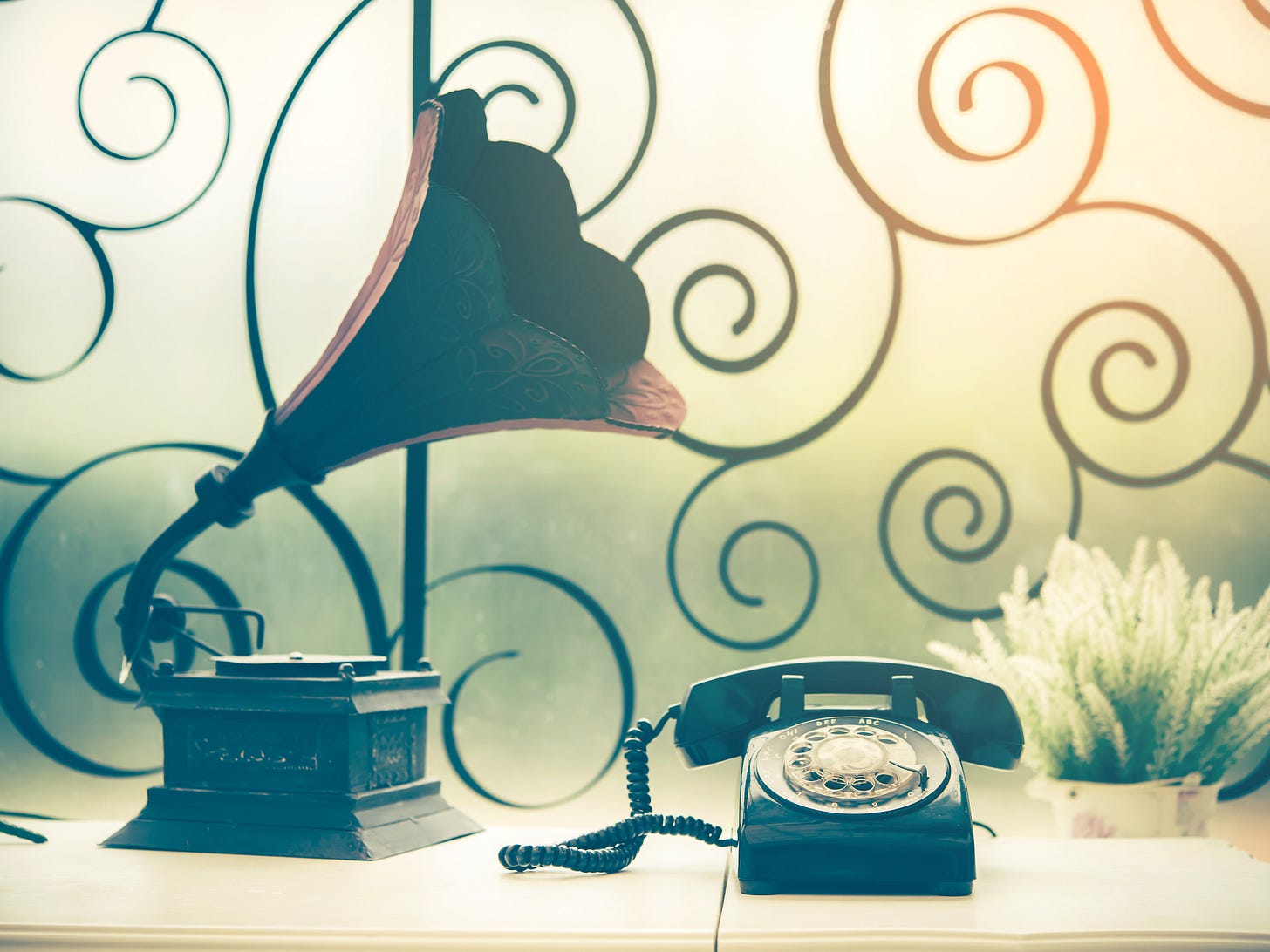How To Manage Your Doom Intake
A practical guide to stop doomscrolling and find hope.
Hello! :) I’m Nospheratt, and this is Joy Every Week;
a weekly quest to find joy in everyday things.
I have something different for you this week: a practical guide to deal with doomscrolling. Before we get to it, if you haven’t yet, please read How To Find Joy When Everything Is Terrifying.
This guide is sort of a companion piece to that. And I think you’ll like it.
I wrote this guide a little over a year ago, for another newsletter. It pains me that it’s still so, so relevant, but it’s probably even more applicable today. I’ve edited it for clarity, and updated with current information.
Since this is long, and a lot to think about, I’m splitting it in two parts. Next week we’ll see how can we find joy at the other side of doomscrolling.
So, everything is fucked everywhere.
10 minutes ago, I went to check something online and ended up sobbing at my desk because of some horrible violence that happened yesterday.1 While I cried, I could see more soul-destroying headlines waiting for me, all over the page.
We have an unending, non-stop barrage of bad news. And worse news. And not-as-bad-but-still-bad news, to fill the gaps between the bad news and the worse news. Pandemic, war, genocide, climate change, violence, mass shootings, disease outbreaks, bigotry, food crisis, hate, corruption, fascism… you name it, and it’s there, awaiting your attention, at all times of every day.
Feeling tired and depressed just reading that paragraph?
And yet, we swim in that river every day. It even has a name: doomscrolling. It’s so common, the Merriam-Webster has added it to their dictionary:
Doomscrolling verb : to spend excessive time online scrolling through news or other content that makes one feel sad, anxious, angry, etc.
💡 Important point: “the news” doesn’t necessarily mean news sites. You may not have noticed, but a good chunk of your doom intake comes through your social media.
We’re not built to live under a constant assault of fear and rage.
But that’s exactly what doomscrolling does—it keeps your brain and your body scared, enraged, in survival mode. It makes you feel anxious, powerless, depressed. Hopeless, defeated.
“Doomscrolling” – compulsively scanning through terrible news – is addictive. It’s also ubiquitous: the average person spends three hours and 15 minutes per day trawling negative content. Over the course of 12 months, this adds up to a whopping 1,149 hours – or 47.9 full days. —Source
Like I said before, those are eye-popping figures. 3 hours a DAY. Over a month and a half out of the year. 🫠 Yikes doesn’t even begins to cover it.
You need to stop inflicting this much damage to yourself on a daily basis.
I’m not judging you—we all do this. Me too. It’s a complex interplay between the way our brain functions, and the way news sites and social media exploit it.
Doomscrolling is one of our primal brains' maladaptive ways of coping with the onslaught of information we're subjected to. The brain thinks that as long as we’re aware of all the shit that’s going on, all the dangers out there, we will be safe.
“If I know what’s happening, I can be better prepared when things get bad,” (…) The fear is that something terrible might happen that you don’t see coming; doomscrolling seems to be an effective way to stay prepared.
“We are hardwired to survive and to see the things that could potentially harm us,” Brigham further explains. “That’s in our DNA, and our ancestors needed this ability in order to literally survive. While our world is very different, we still have this drive to keep ourselves safe, which we think we’re doing by reading negative news stories.” —Source
News sites and social media algorithms take advantage of that to keep us engaged and consuming content. Generating profit for them.
I’m not telling you to be completely oblivious to the news—though that’s absolutely valid, if that’s what you need. If you need permission, here it is: I’m officially giving you permission to not read any news ever.
If that’s not your case, that’s okay. Lots of people want to keep up with what’s happening in the world, and that’s also valid; it can actually be a way to protect yourself, to know what you can or should do to be safe.
And to work for change, to make things better.
But that doesn’t mean you need to be reading bad news all the time, every day. It's not sustainable to live eternally, permanently scared, angry and screaming. Or silently despairing.
This Week’s Quest - Manage Your Doom Intake
We need some magical way to keep up with the news, without falling into the doomscroll river.
Except, of course there’s no magical or even easy way to do that.
It’s going to take a bit of work and practice.
📌The Practical Guide
⚠️ Important: You’re NOT going to do this in one day.
Take your time, do a little any time you can, when you have the energy to do so.
Don’t turn this into another source of anxiety. Just take it one step at a time.
Remember: progress is good. Perfection doesn’t exist. You’re not going to manage to stop doomscrolling and have a perfectly balanced news diet immediately or all the time. Nobody can do that.
Focus on tiny improvements, one step at a time. It all counts.
Don’t rely on your willpower. You have more important things on which to use the limited decision-making energy you have each day.
Choose what feels helpful to you and discard the rest. This is not a test. You won’t be judged or evaluated for how you do or don’t do what I’m suggesting, for doing it all or just one thing. Or even nothing.
Whatever feels right or possible to you is the best thing you can do. And I’ll always support that.
To make the work easier, get a cup of your preferred beverage. Play some nice music or a comforting show in the background.
Set tiny goals, if you’d like. For example: “I’ll work on this for 5 minutes.” Celebrate. Take breaks.
Be kind to yourself.
And remember: this is a marathon, not a sprint.
1 - Phone
First of all, let’s set you free from the tyranny of notifications.
Block notifications from news apps.
It may feel like “omg but something important is going to happen and I’m not going to know!!!” but believe me, it won’t. You will find out about important news immediately, from multiple sources. Family, friends, your social feed, group chats. You don’t need to be pinged constantly with every new hot take, rehashed headline or enraging think piece.Block all push notifications from social media except @ mentions.
Same as above. You won’t miss anything important. You will, however, take back control of your time and your attention.Set timers for the apps that feed you news in real time.
So you can’t scroll beyond a certain time limit. One hour a day is probably more than enough, for all news apps & sites combined. You can also set timers for specific websites.On Android, you have the Digital Well Being Tools. I don’t own iThings, but there are similar features for iPhones.
When it’s time to go to bed, turn on the Do Not Disturb mode.
So you won’t get any notifications that can drag you into doomscrolling. And avoid checking the news or social media “just one last time” before entering DND mode. This is something I battle everyday; the impulse to make sure I know about everything that’s happening right before I go to sleep. The problem is that not only that “one last time” will easily turn into an hour or more of doomscrolling, but the stress it generates will fuck up your sleep.Don’t start the day reading the news.
Another difficult one for me. But when I manage to wait until I’m up and about to check the news, instead of as soon as I open my eyes, I don’t start the day with my heart pounding, my blood boiling and my head aching.
I know you’re still going to use the phone (I do), but without notifications deciding where you should spend your time, you can choose to watch something fun, read fanfic or books, play a game or anything else that will give your nervous system a break from the doom.
2 - Computer
Set boundaries in your computer like you did with your phone.
Some apps, like Freedom, can be used for your phone, browser and computer apps. There are also browser extension and other tools.
Chose one, install it, configure it, use it.
I use Freedom, RescueTime and Forest.
3 - Twitter
To be honest, I think the best would be to leave Twitter.
The owner is a not-smart, transphobic right-winger edgelord and he’s not only using Twitter to promote Trump and interfere, but he’s making the site increasingly unusable for users.
This one hurts. A lot. I’ve been a Twitter use since 2007. I made friends there, built and joined communities. Had so much fun. Learned interesting things, met fascinating people. I miss it horribly, but I just can’t be there anymore. I still have my account, but I rarely go there, and every time I go, I’m reminded of why I abandoned ship.
If you’re unable or not ready to leave Twitter, here’s what you can do:
Delete the app.
The user experience is far superior in the browser, especially if you use ad-blockers.Cleanse your follows.
It takes time, I know. It’s worth it for your mental health.Unfollow people who only make you feel bad with their posts, for whatever reason. Doesn’t matter if it’s excessive news, stirring comparison issues, too much drama, plain old rudeness.
If you can’t or don’t want to unfollow, mute people.
Mute words and hashtags about stuff that make you angry or depressed.
Turn off retweets for people who retweet too much stuff you don’t want to see.
Create Twitter Lists.
Lists allow you to customize, organize and prioritize the Tweets you see in your timeline. Try:
Closer mutuals, the people you interact with the most, so you can keep up with them.
Inspiring, fun or beautiful accounts. Create a list that you can use as refuge or pause, when you have the urge to be on Twitter but can’t take all the crap anymore.
4 - Bluesky
I’m using Bluesky these days. It has its problems, everything does; but that’s where I am. If you’re there, say hi: Nospheratt@Bluesky
You can follow the Twitter steps above for Bluesky. Just remember that in Bluesky:
Posts and likes are public. (no private accounts)
Blocks are public.
Mutes are private, but mutelists are public lists. Your mutelist subscriptions are private.
And instead of lists, you can follow Feeds or create your own. Check the Bluesky User FAQ for more info.
New to Bluesky? Check this How To Get Started Guide. And say hi! 😊
5 - Facebook
Delete Facebook.
No, seriously.
Alright, alright. You need to keep in touch with your family, you have an author page, whatever. So here’s what to do:
Delete the app. Use the browser to access it.
Mute and unfollow all the people that only make your blood pressure skyrocket. You cannot—I repeat—CANNOT afford to waste you time, mental health and physical well being on those people.
Figure out a way to only see posts from people you trust, people from who you WANT to see posts, in your feed/timeline. I do have an account on Facebook (to keep my username and check some groups & links from time to time), but I don’t really use it, so I don’t know how to do that.
Which reminds me: revise the list of groups you belong to, and leave any and all groups that don’t add anything good to your life.
ESPECIALLY leave the groups where you only get drama and rage, the places where you are a member just to keep tabs on shitty people, gossip and drama, the groups that make your skin crawl. Just leave. It will be scary at first, and you may go through something akin to withdrawal syndrome, but after a few days you’ll realize how much better you feel.
6 - Other social sites
Same applies. Instagram, TikTok, Discord, WhatsApp groups, whatever.
Make an audit of the people you’re allowing into your mental space, and the places you’re participating in.
Block, mute, unfollow and leave as appropriate.
Even if you’re not deleting your accounts, it may be a good idea to delete the apps. You can still access the app websites via browser, but it won’t be as easy and it will help you to be more intentional about the time you spend there.
7 - News Feeds & Sites
Choose one — ONE—news source. Preferably, one you trust (as much as one can trust anything nowadays). One that’s more about news than about sensationalism and clicks. Unsubscribe from all the others.
Decide a time of the day to check it. Unless there’s something catastrophic going on, you don’t need to check the news every hour of every day.
Yes, I know. Lots of catastrophic things are happening every day. 🫠But you know what I mean. Very few of those catastrophes and horrible things merit your constant attention throughout the entire day every day.
And you’ll be surprised about how much news still reach you, even if you do everything I suggested above.
Take a Breath.
Like I said at the beginning, nobody is going to completely stop doomscrolling forever.
It’s not an easy habit to quit, and it will flare up again every time there’s something really important or impactful happening. Our objective here is to scale it down to manageable levels — at least most days.
If you “fall off the wagon” so to speak, don’t berate yourself. Remind yourself that you’re human, you’re doing the best you can.
And then try it again the next day.
And the next day.
And the next.
It’s amazing what you will eventually accomplish, if you just… try it again the next day, again and again. That’s how I approach most things in life — alright, today was no good, I didn’t manage to do X. That’s okay. I’ll try it again tomorrow.
It works orders of magnitude better than beating yourself up and quitting.
Next week, we’ll talk about ways you can add joy and hope to your daily scrolling. Don’t miss it! 😄
That’s It For Today!
I hope it’s useful. And I’m curious: do you have any strategies to deal with the intrusiveness and distraction of notifications? Tell me in the comments!
Until next time. —Nospheratt
Not going to say what it was - that’s not the point.






Hi Nos. I detest notifications. I choose what I want to be exposed to and when that exposure takes place. That's how I manage the flow of info into my brain from social media. I cancel-mute-neutralize social media built-in algorithms that seek to pigeonhole us by methodically inserting variety into my daily menu of whatever I "consume" online. About joy and happiness... They're strictly subjective. Your joy could be my grief and viceversa. And let's not forget some people thrive in their misery.